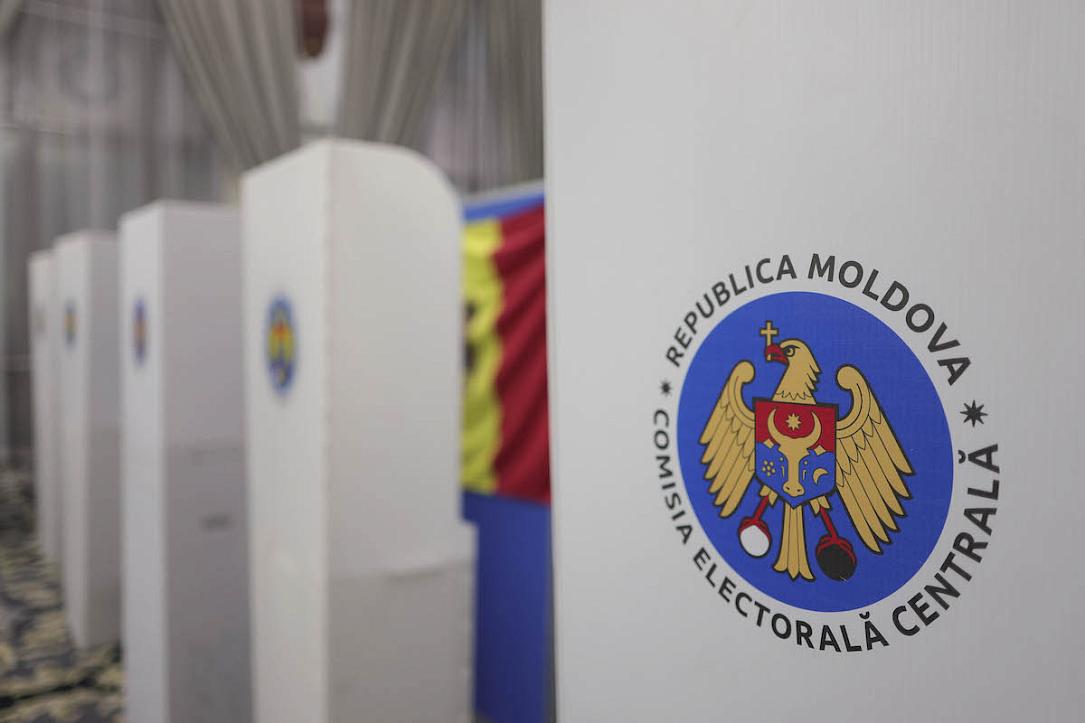Moldova's pro-EU authorities survive constitutional referendum



Moldova's pro-EU authorities narrowly succeeded in having passed the constitutional referendum on the country's European path held on October 20, with significant challenges ahead for president Maia Sandu as she faces a difficult second-round presidential vote.
The referendum, which sought to solidify Moldova's commitment to European Union accession, saw a substantial portion of the electorate - nearly half (49.6%) - voting against EU integration, casting doubt on the country's political trajectory.
Deputy prime minister for European Integration Cristina Gherasimov, speaking to Newsmaker.md, described the result as a survival of democracy in the face of "Russia's interference and hybrid warfare." Indeed, the outcome was not much more than surviving and far from a firm affirmation of Moldovans' pro-EU orientation.
The near-final results reflect a divided electorate, with a majority of it opting for presidential candidates who hold pro-Russian or ambiguous views on Moldova's future alignment. The outcome underlines the challenges facing Moldova's pro-EU forces, who must contend with a significant portion of the population that remains unconvinced of the benefits of European integration.
For Sandu, who is seeking a second term, the tight referendum results signal a difficult path ahead. Despite receiving the largest share of the vote (42.5%) in the first round of the presidential elections, she lacks significant political allies domestically and is expected to face strong opposition from Alexandr Stoianoglo, her closest rival, who garnered 26%. Stoianoglo, a former chief prosecutor dismissed by Sandu, has drawn considerable support from pro-Russian factions and is likely to be bolstered by votes from other candidates who were eliminated after the first round.
The tight margin in the referendum results presents a risk for Maia Sandu's re-election bid. While the pro-EU amendment appears to have passed, the narrow victory leaves room for the opposition to challenge its legitimacy, potentially mobilising voters against Sandu in the second round of the presidential election. The unexpectedly strong support for Stoianoglo underscores the latent loyalty of Moldova's pro-Russian electorate, many of whom may have been reluctant to express their views openly prior to the vote.
Moreover, the discrepancy between polling data and actual results suggests that the authorities have struggled to engage the Russian-speaking electorate, which remains influenced by Russian media narratives. Discontent over stalled progress on key issues such as anti-corruption efforts has also contributed to the erosion of public support for Sandu and her party, the Action and Solidarity Party (PAS). The government's failure to adequately address these concerns has left it vulnerable to accusations of autocracy and a lack of transparency, with critics suggesting that Sandu's leadership has become increasingly insular.
In a statement on October 21, Maia Sandu acknowledged that "much must be done to fight corruption" but stopped short of admitting any significant policy failures, instead attributing the referendum's narrow outcome to the influence of fugitive oligarch Ilan Shor and Russian meddling. Shor, currently in Moscow, has long been seen as a key player in Russia's attempts to destabilise Moldova's political landscape.
Looking ahead, Sandu's prospects for a second term are far from certain. While she remains the leading candidate, her lack of a vote reserve - a critical factor in Moldovan elections - leaves her vulnerable. Stoianoglo, in contrast, is expected to consolidate support from voters aligned with other candidates, making the second round of the election highly competitive.
The next parliamentary elections, scheduled for 2025, will further test the pro-EU bloc's ability to maintain its influence, as PAS faces an uphill battle to secure a majority without broadening its coalition base.
The referendum result, while a nominal victory for the pro-EU camp, exposes deep divisions within Moldova. The coming weeks will determine whether Maia Sandu can overcome these obstacles and whether Moldova's European aspirations can withstand the growing pressure from pro-Russian forces.
iulian@romania-insider.com
(Photo source: Inquam Photos / Octav Ganea)